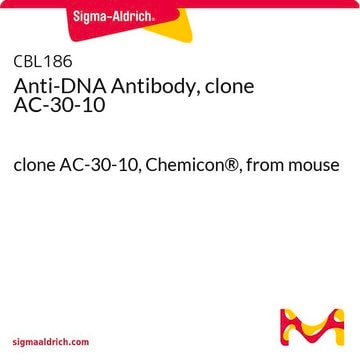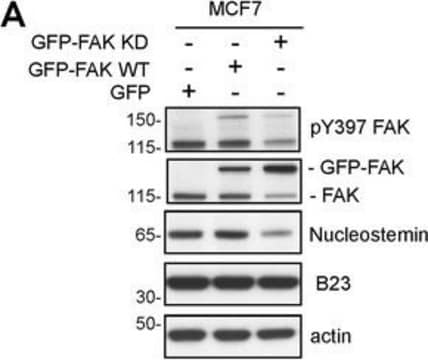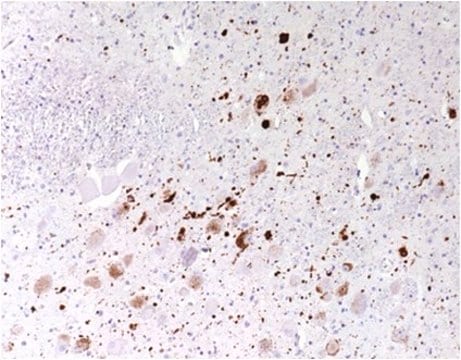Opis ogólny
Double-stranded RNA (dsRNA) is a viral product that induces innate immunity, leading to the production of interferon (IFN) alpha and beta, which can lead to the activation of hundreds of IFN-stimulated genes that confer resistance to viruses. dsRNA of more than 30-bp length are reported to be is a key activator of the innate immune response against viral infections. dsRNA is produced by positive-strand RNA viruses, dsRNA viruses, and DNA viruses. However, negative-strand RNA viruses are not shown to generate any significant dsRNA signals. The interaction of the host cell with dsRNA can occur in several ways. Mainly, specific receptors activate the synthesis of IFN alpha and beta, antiviral proteins, and dsRNA-activated enzymes that can block viral replication. dsRNA replication is shown to occur in the cytoplasm for all dsRNA viruses. This dsRNA-specific mouse monoclonal antibody specifically recognizes dsRNA of more than 40-bp length. Clone rJ2 has been used to detect dsRNA intermediates of multiple types of viruses, including Hepatitis C virus, Dengue virus, rhinovirus, Chikungunya virus, Rabies virus, and Polio virus in biological samples. It can be useful in understanding how anti-viral responses are initiated and what how viruses overcome and avoid these antiviral therapies.
Specyficzność
Clone rJ2 specifically recognizes double stranded RNA (dsRNA) of greater than 40 bp in length that is generated during the replication of positive sense genome viruses.
Immunogen
Double stranded RNA produced by positive sense genome viruses.
Zastosowanie
Anti-dsRNA, clone rJ2, Cat. No. MABE1134, is a mouse monoclonal antibody that detects double stranded RNA (dsRNA) and has been tested for use in Immunocytochemistry and Immunofluorescence.
Immunofluorescence Analysis: A representative lot detected dsRNA in Immunofluorescent applications (Savidis, G., et. al. (2016). Cell Rep. 15(11):2323-30; Savidis, G., et. al. (2016). Cell Rep. 16(1):232-246).
Research Category
Inflammation & Immunology
Jakość
Evaluated by Immunocytochemistry in Dengue virus infected A549 cells.
Immunocytochemistry Analysis: A 1:60 dilution of this antibody detected dsRNA in Dengue virus infected A549 cells.
Postać fizyczna
Mouse monoclonal antibody in supernatant without preservatives.
Unpurified
Przechowywanie i stabilność
Stable for 1 year at -20°C from date of receipt. Handling Recommendations: Upon receipt and prior to removing the cap, centrifuge the vial and gently mix the solution. Aliquot into microcentrifuge tubes and store at -20°C. Avoid repeated freeze/thaw cycles, which may damage IgG and affect product performance.
Inne uwagi
Concentration: Please refer to lot specific datasheet.
Oświadczenie o zrzeczeniu się odpowiedzialności
Unless otherwise stated in our catalog or other company documentation accompanying the product(s), our products are intended for research use only and are not to be used for any other purpose, which includes but is not limited to, unauthorized commercial uses, in vitro diagnostic uses, ex vivo or in vivo therapeutic uses or any type of consumption or application to humans or animals.
This page may contain text that has been machine translated.









